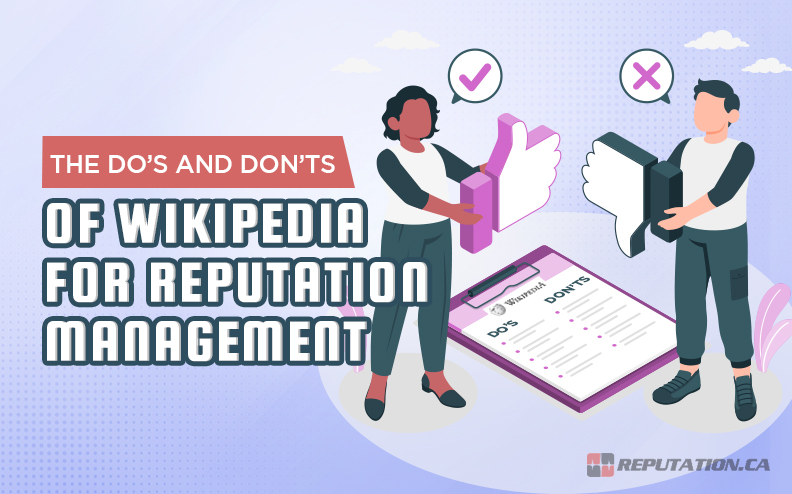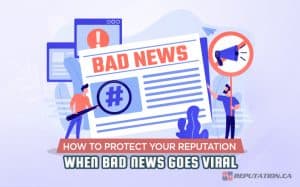Managing our public image is never easy, especially since our reputations can easily change. Modern technology has introduced communication and data services that allow information to spread faster than ever. This has generated a catch-22 since bad news spreads as fast as good news, if not faster, given society’s obsession with negative information.
We have begun relying on information technology to learn more about the people and companies surrounding us. As a result of this desire for information, thousands of websites have been created to make that information as accessible as possible. Unfortunately, this can adversely affect the companies discussed in these information networks since not all data is beneficial. Wikipedia is one website that provides a deep insight into an organization or individual.
Wikipedia has become one of the most commonly visited websites since it provides users with a concise history of their research subject. Wikipedia has essentially evolved into one of the average user’s main tools for gathering information. Wikipedia is surprisingly strict about the information it publishes in an article, revitalizing user faith in its offers.
This is not to say Wikipedia is perfect and immune to abuse, but that most people who use it will trust what they read. This has led the subjects of Wikipedia articles to try and cultivate a more favorable summary that prevents their overall reputation from being damaged. Unfortunately, this is easier said than done since there are many mistakes one can make when managing a Wikipedia article.
DO NOT: Create Your Own Wikipedia Article
One of the first instincts you might have is to try and take luck out of the equation by personally creating a Wikipedia article about yourself. While this might seem smart in theory, you will find that it is prone to backfiring since Wikipedia takes moderation very seriously. Wikipedia’s team of administrators (their equivalent to moderators) must approve every article submitted for publication.
One of the things they look out for is someone trying to publish an article about themselves or their business. When they see an individual or organization attempting to publish an article about themselves, they almost always reject and remove it. This is not because they necessarily have something against you but because they are trying to preserve their integrity.
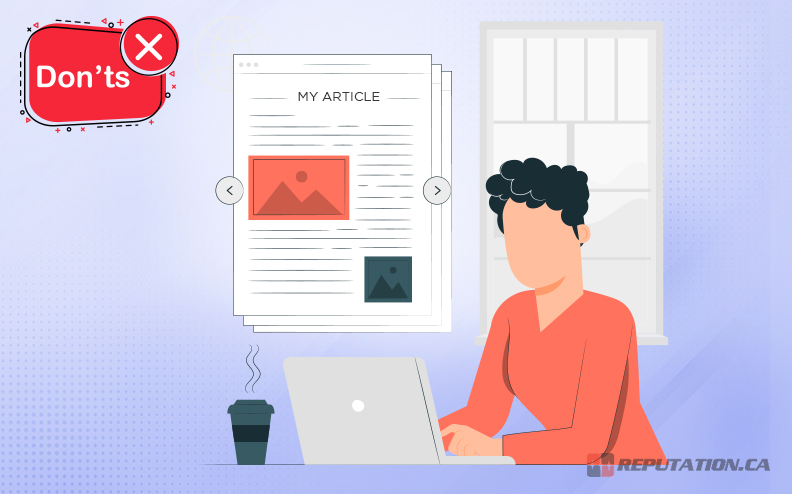
When we are writing an article about ourselves, it is common for us to want to leave out the details that might be viewed as unsavory to potential readers. Even if you are not intentionally trying to hide anything, Wikipedia’s moderators must operate under the assumption of unconscious bias. By default, we might omit certain details that might be relevant to the readers because we do not want to be viewed poorly.
This issue has affected Wikipedia before, so their moderators have become stricter in enforcing the regulation against self-publishing. Essentially, you must allow an unbiased 3rd party to author the Wikipedia article about you if it will stand a chance of being published. Fortunately, there are ways you can ensure no one uses the article as a tool to defame you.
DO: Use Wikipedia’s Editing Function
While Wikipedia is not thrilled about the subject of an article editing the content, they are laxer about edits than if you write the entire article. Wikipedia has always allowed users to edit articles, though their changes are subject to moderator oversight to ensure they are factual. The same privilege extends to the article’s subject if they believe the information in the article is false or based on rumor instead of fact.
Being able to edit articles about ourselves or our businesses is considered a privilege rather than a right by Wikipedia’s standards. Therefore, the changes we make to such articles can be undone if Wikipedia’s administrators believe the changes were unjustified. Wikipedia has special provisions for editors who have a conflict of interest to ensure the changes are not made to abuse the system.

For an editor with a conflict of interest, all edits must be made within the bounds of Wikipedia’s policies and guidelines. The edits will still be subjected to the administrators’ review process and, in all likelihood, be scrutinized more carefully because of the conflict. However, the edit will be allowed if you do not stray from Wikipedia’s rules. If you want to avoid any question of neutrality, you can also take advantage of the “Talk” section assigned to the article.
This section is essentially a comments section where questions and recommendations can be addressed. If a recommendation is approved, an authorized editor will change the article without you having to do it yourself, preserving the neutrality Wikipedia strives to maintain.
DO NOT: Use Wikipedia to Advertise
Platforms like Wikipedia are designed to provide information to common users without bias. This anti-bias stance is why this article’s previous 2 points were worth addressing. Unfortunately, some companies and individuals are unaware of what that neutrality means and will occasionally disrespect it. According to Wikipedia, one of the worst offenses is commandeering an article and repurposing it as an advertisement for your products or services.
Wikipedia is not a marketing website and does not take kindly to its content being repurposed for a company or influencer marketing campaign. Therefore, any edits you make to the Wikipedia article about you must be free of anything that remotely resembles an attempt to promote your product.
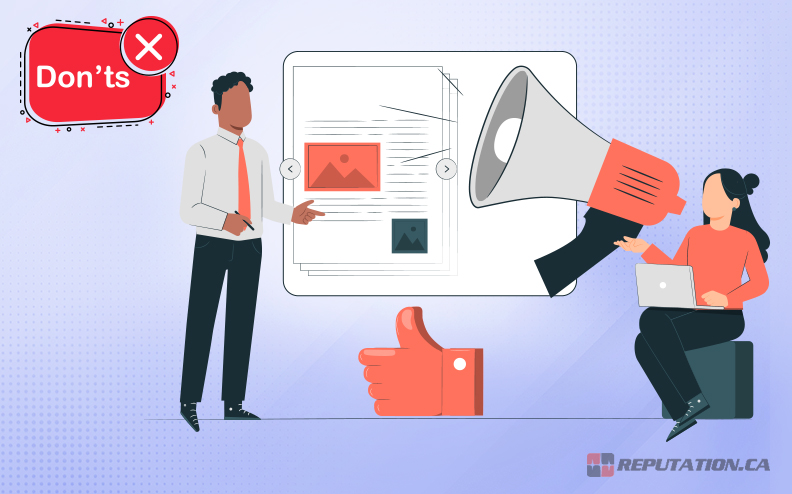
Editing a Wikipedia article to focus on the benefits and value of your product rather than objective information surrounding its function and manufacture violates Wikipedia’s policies. As a result, they will likely be undone, and the original content restored to maintain its integrity.
Repeated attempts to turn your Wikipedia article into an advertisement could lead to your ability to make edits being suspended if you use a Wikipedia account. Ultimately, the administrators will focus more on ensuring the content does not delve into advertising than punishing you. Despite that, you should respect Wikipedia’s policies since attempted abuse of their system could reflect poorly on your company.
DO: Include Sources
Whenever you adjust a Wikipedia article for whatever reason, there is an expectation from the administrators that you will stick to facts. Wikipedia articles lack opinionated content because they are meant to inform the readers as best they can.
Most of the information gleaned from Wikipedia is general knowledge, but almost everything stated in the article is accompanied by a small number in brackets that is hyperlinked. Those hyperlinks lead to the bottom of the Wikipedia article, where you will find an extensive bibliography outlining the sources used to authorize the article. These sources provide the knowledge necessary to assure Wikipedia users that what they read is legitimate and backed by a reputable source.

These sources help make Wikipedia articles more reliable, but they can also be employed by editors looking to update a potentially harmful article. You should include your source when you make an edit to disprove allegations made by the original author or by a previous edit. This will help the moderators identify your edit as factual and will be less likely to reject it despite your personal interest in the topic.
Insofar as Wikipedia is concerned, including your source with your edits is usually standard procedure, but many users make edits without them. Ensuring your sources are included will expedite your edits and make it harder for Wikipedia’s administrators to oppose them, but you must remain respectful of the process.
DO NOT: Include Links to Your Website
This next Wikipedia faux pas is closely related to Wikipedia’s aversion to their articles becoming advertisements. This might initially seem like you should avoid making sections of the article dedicated to explaining the product’s benefits, but it goes beyond that. The source links used to corroborate the article’s content are Wikipedia’s method for ensuring the content is reliable.
The bibliographies attached to a single article can have hundreds of links or only a handful, depending on the subject’s notoriety. For example, the Wikipedia page for Apple Inc. has 377 sources attached to its content, whereas the article for ponchos only has 14. The difference between the two is that one is a multibillion-dollar corporation, and the other is an article of clothing. With the sheer number of sources attached to certain articles, it can be easy to slip a link to your company’s website into the associated Wikipedia article.
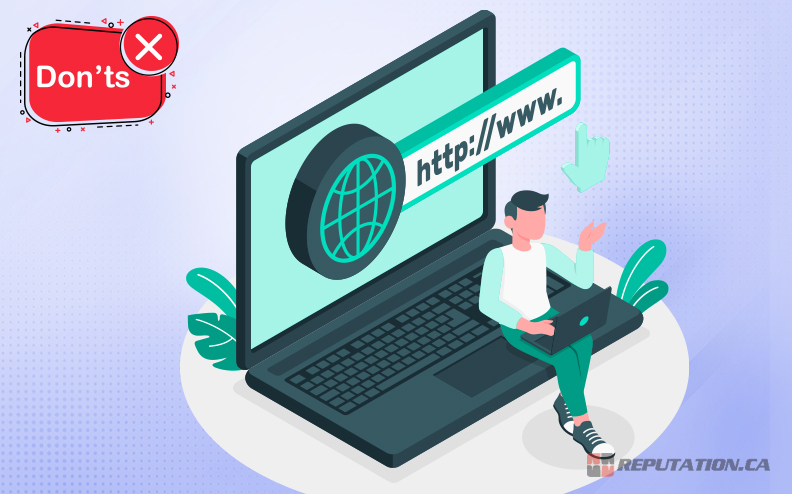
While it is possible to add these links, doing so violates Wikipedia’s anti-advertisement regulations. Adding a link to your website is akin to using Wikipedia as a direct advertisement platform since the “source” links directly to the product or service the article is meant to educate the reader about. Directing them to a domain where they can purchase that product or service essentially turns their efforts to learn more into coercion.
Wikipedia will rapidly remove any links that lead back to your domain, regardless of whether it leads to the product page or an information page about your company. Either way, you cannot attach links to your domain to the Wikipedia article if you want to stay on Wikipedia’s good side. You can use alternatives to direct traffic to your domain without co-opting Wikipedia’s articles.
DO: Attempt to Outrank Wikipedia Articles
While Wikipedia remains one of the most used websites on the internet, it is not so popular that other results cannot overpower it. Every search engine utilizes an algorithm to maximize its efficiency for the user, focusing on the results it perceives as the most relevant to the initial search. Whether someone is searching for a product, location, individual, or organization, search engines will scour millions of results to locate the ones that seem most relevant to the user.
As a result, the “important” results are closer to the top of the page, while the “unimportant” results are lower on the list. This might seem like a minor issue, but 75% of Google users never bother to scroll past the first page of results, meaning critical information could be overlooked because it did not make the cut.
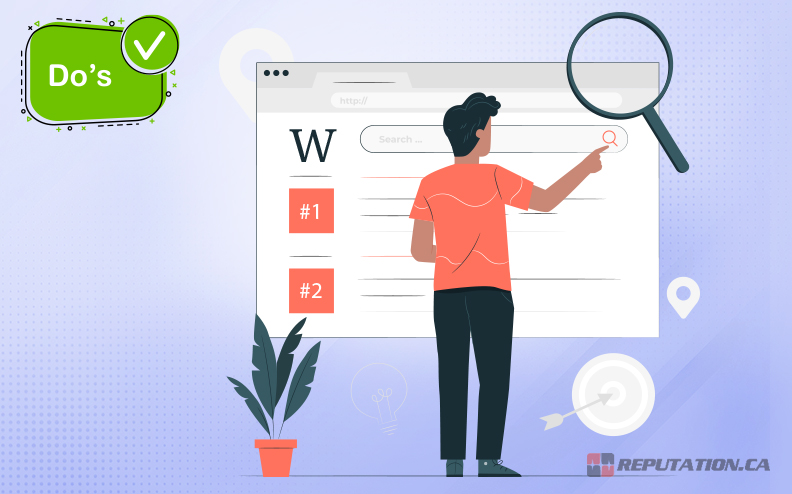
Wikipedia articles are often near the top of the results page, but it is possible to outrank them if enough competing content is available. This is where you can directly interact with the system and try to put priority on your results over Wikipedia’s. The key to this is generating new content that provides the information a Google user is looking for with more detail than Wikipedia provides.
This requires whoever generates the content to be well-learned in the details of your industry and services. This way, any information the user might be looking for can be found in your content rather than someone else’s. That said, you should exercise the same level of honesty that you would expect on Wikipedia to avoid being perceived as deceptive.
Take Your Reputation Back!
Wikipedia is an important resource to millions of internet users worldwide due to its convenience and encyclopedic level of content. Unfortunately, the details of a Wikipedia article can damage your reputation if you do not ensure the content is accurate. Monitoring the Wikipedia article about you or your business is essential to reputation management, even if you are somewhat limited in what you can do with it.
Regardless, your efforts to prevent the article from damaging your reputation can be crucial to preserving your public image. The problem is that monitoring information like this can be a full-time job, and you might not have the time to do it personally.

We at Reputation understand how important your public image is and how easily it can be damaged. That is why we offer multiple services that allow us to act on your behalf to preserve your reputation online. While most think firms like ours focus on social media management (which we offer), we also have focused Wikipedia management services.
We can monitor the article on your behalf, satisfying Wikipedia’s policies to avoid turmoil. There can be no shortcuts concerning your public image, so be sure to visit our website today and take your reputation back!




